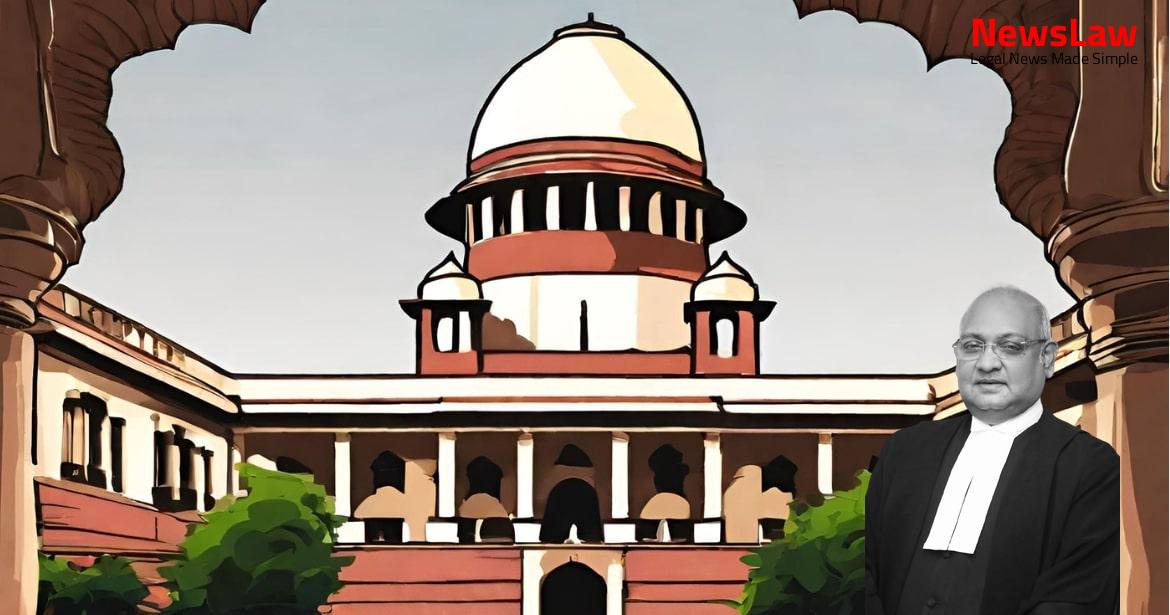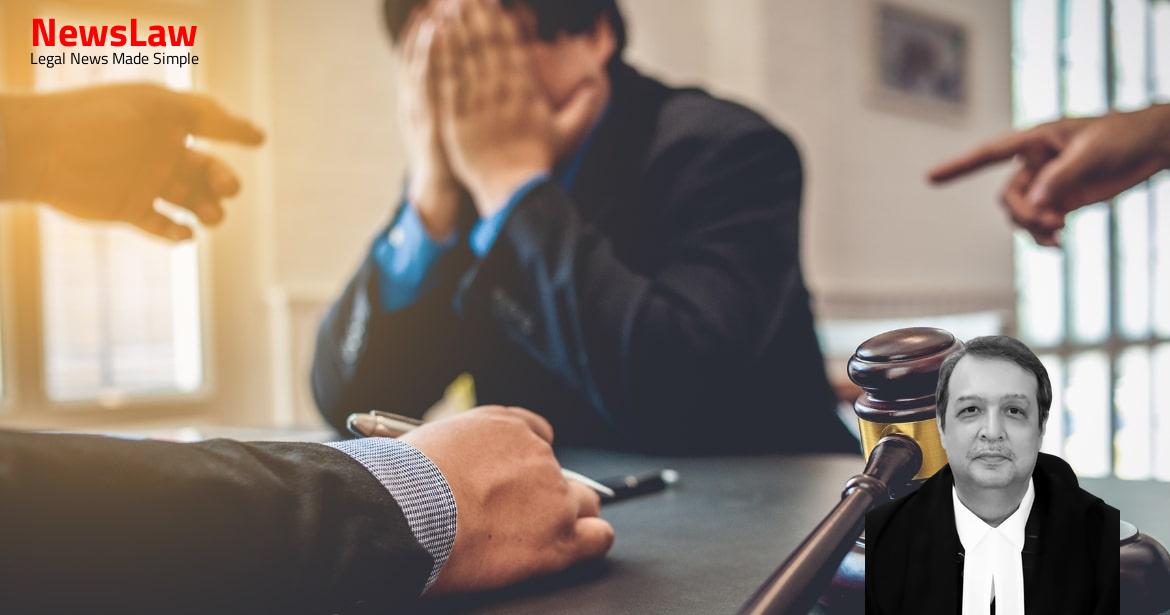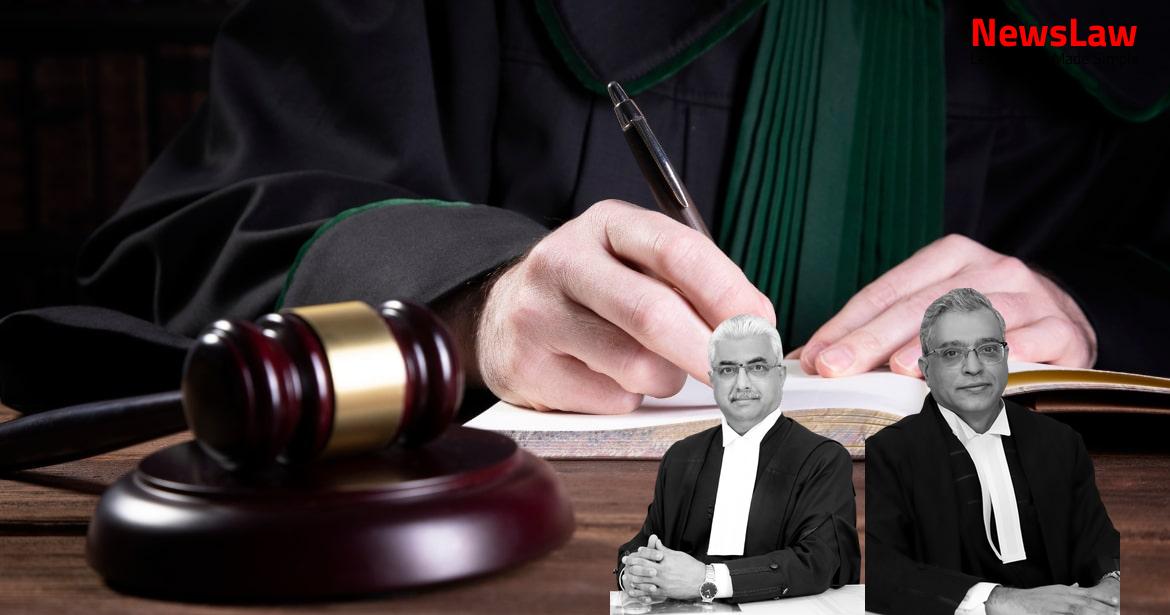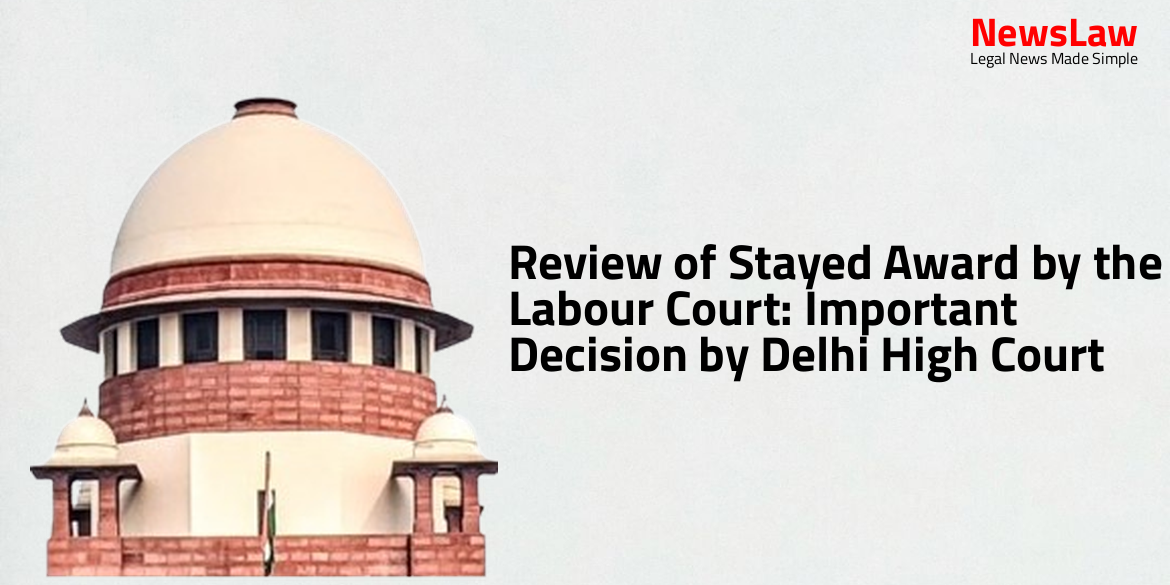The legal landscape in India sees a significant turn as the Supreme Court’s recent judgment impacts the Dariyapur Panchayat Mukhiya Election. The decision to reverse the Election Tribunal’s ruling has brought fresh perspectives and implications to the forefront of this case. Stay informed on the latest developments in this consequential legal battle.
Facts
- Appellant filed an election case seeking recounting of votes due to irregularities during the counting process.
- Allegations included swastika symbol pressed in light ink not being counted in favor of the appellant.
- Some invalid votes cast in favor of Respondent No 1 were accepted and counted as valid despite objections.
- A prima facie case was made regarding the rejection of valid votes of the plaintiff.
- Plaintiff immediately applied for recounting upon discovering irregularities in the vote counting process.
- Election Tribunal accepted the grievance of the appellant regarding improper vote counting.
- High Court set aside the orders of the Election Tribunal, resulting in the dismissal of the election case filed by the appellant.
- Respondent No. 1 was declared elected with a margin of 154 votes.
- Learned single Judge of the High Court reversed the order of the Election Tribunal setting aside the election before the recount of votes
- Parties were sent back to the Election Tribunal for further orders after reviewing the recount results kept in a sealed envelope
- Election Tribunal found in favor of the appellant based on documentary evidence and plaint on record
- Division Bench of the High Court disposed of the Letters Patent Appeal and writ petition without analyzing the factual aspects considered by the Election Tribunal and learned single Judge
- Division Bench reversed the decision of the Election Tribunal regarding recount of votes without inspecting the ballots or forming any prima facie opinion based on the material produced by the appellant/election petitioner
- Impugned judgment adopted the interim view passed by the Division Bench on 24.7.2019 without proper analysis of pleadings and evidence presented by the appellant/election petitioner
- Order of recount passed by the Tribunal on 11.10.2018 was quashed
Also Read: Balancing Justice: Case Summary of C.P. No. 16/2017
Arguments
- The Division Bench of the High Court reversed the decision of the Election Tribunal without analyzing the pleadings and evidence presented by the election petitioner.
- The impugned judgment failed to consider the evidence of serious irregularities during the vote counting process.
- The Election Tribunal ordered a recount without proper inspection of the ballots or forming a prima facie opinion based on necessary material.
- The appellant argues that the decisions cited by the Division Bench cannot overturn the well-considered decisions of the Election Tribunal and the single Judge.
- The incident of transferring records from the strong room to the Court under private custody raised additional concerns.
- There was a debate on the maintainability of the election petition due to intentional false pleas by the election petitioner.
- The case is recommended to be sent back to the Tribunal for further examination based on the evidence and pleadings presented.
- Learned counsel for the State of Bihar supported the law laid down in the case of Bhabhi Vs. Sheo Gobind and others.
- The State of Bihar contends that the law in Bhabhi Vs. Sheo Gobind should be followed.
Also Read: Interpreting Section 14 of the 2002 Act: Equivalence of CJM and CMM
Analysis
- The Election Tribunal found irregularities in the counting of votes, stating that the result sheet was irregular and improper.
- The Election Tribunal ordered a recount of votes, which was also upheld by the learned single Judge.
- The Election Tribunal’s decision to order a recount was based on evidence presented by witnesses supporting the election petitioner’s claim of irregularities.
- The Division Bench interfered with the Election Tribunal’s decision of recount without proper analysis of the evidence presented.
- Specific conditions are necessary for a court to grant a recount of votes, ensuring the secrecy of the ballot and clarity in the allegations made.
- The reevaluation of votes revealed the election petitioner had secured 95 more valid votes than Respondent No 1.
- The Tribunal’s actions in issuing certain orders were considered hasty and overreaching by the courts.
- The Election Tribunal’s errors were deemed as causing malice in law due to their handling of the recount process.
- In the case of Sohan Lal vs Babu Gandhi & Ors., the three-Judge Bench opined that the lack of a recount request during counting does not preclude filing an election petition or directing a recount afterwards.
- The decision in Ram Rati vs Saroj Devi & Ors. was overruled, allowing for recounting in an election petition even without a prior written request to the Returning Officer.
- There is no statutory prohibition in the Act or Rules against the Court or Tribunal directing a recount of votes.
- The Court emphasized that a party may realize the need for recounting only after results are declared, making it impractical to apply to the Returning Officer at that stage.
- The Court is obligated to consider pleas for recount in an election petition and may order a recount based on the evidence presented by the parties.
- In the case of Bhabhi, the Court outlined the criteria for issuing directions for inspection or recount of votes.
- The new factual matters were not mentioned in the impugned judgment.
- The alleged acts are already the subject of proceedings under Section 340 of the Cr.P.C.
- The court can dispose of the matter since the respondent had succeeded based on rejected grounds.
Also Read: Judgment by Supreme Court of India in M/s. Bhilwara Processors Ltd. vs. Department of Central Excise
Decision
- The election case filed by the appellant before the Election Tribunal is allowed.
- The appellant is declared as duly elected with the highest votes among the contesting candidates.
- A margin of 95 more valid votes than the original respondent No. 1 secured by the appellant.
- Certificate in favor of the original respondent No. 1 as return candidate is declared void.
- Impugned judgment and order are set aside.
- The final result for the post of Mukhiya of Dariyapur Panchayat, Block Naubatpur, District Patna is declared null and void.
- The present appeal (L.P.A. No. 382 of 2019) is allowed.
- The impugned judgment of the Single Judge dated 6th of March, 2019 is set aside.
- Option for original respondent No. 1 to pursue proceedings under Section 340 of the Cr.P.C.
Case Title: CHANDESHWAR SAW Vs. BRIJ BHUSHAN PRASAD (2020 INSC 95)
Case Number: C.A. No.-000780-000780 / 2020



